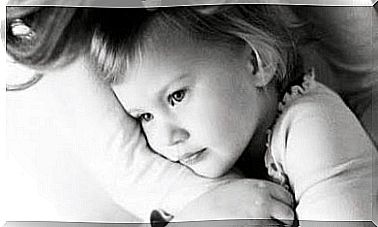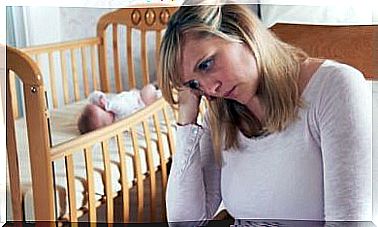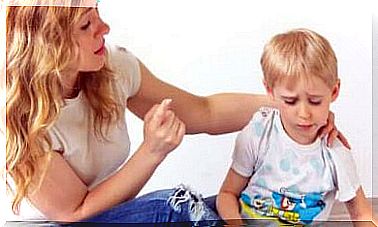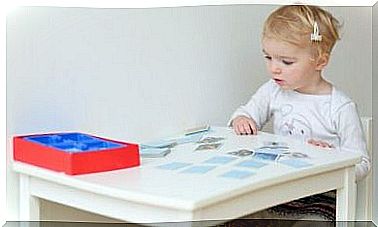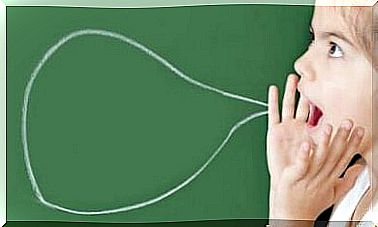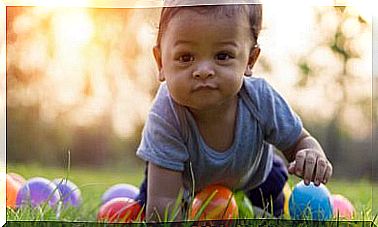Attachment And Hyperpaternity
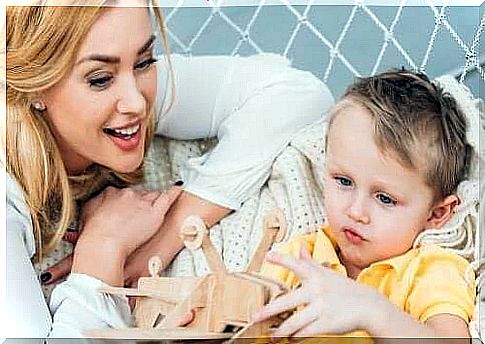
These two concepts, attachment and hyperparenting, are terms used to characterize a cultural trend towards parenting style. It’s something that started to be discussed at the beginning of this century. And, currently, different sociologists and psychologists have warned about the negative effects of this social phenomenon.
The parents’ excessive concern for their children results in a generation of anxious and insecure children. In some cases, they even have health problems.
It is normal for parents to wish the best for their children and try to protect them from harm. However, following a parenting pattern based on excessive attachment exceeds the limits of a psychologically healthy parent-child relationship.
Currently, in many cases, there is talk of an excess of care, or of parents too involved in their children’s lives. Different denominations are given: helicopter parents, mother-to-be, rail cleaner parents, bodyguard parents. But the proper name would be hyperpais.
What is hyperpaternity?
Being the best parents will always be the main goal of everyone who starts a family. However, at times this motivation can be expressed too forcefully. Hyperparenting refers to parents who are overly involved in their children’s lives.
An excess of protection on the part of adults can limit the development of the little ones. The point is that this influences the personality a lot, as children are pressured with countless extracurricular activities and there is interference in their social life, among other negative attitudes.
The overprotection of parents can interfere with the young person’s academic destiny and professional career, in addition to restricting their autonomy and independence. Parents, therefore, are called upon to strike a balance and avoid falling into the trap of hyperparenthood.

Some warning signs
Certain parental actions indicate the risk of falling into the hyperpaternity trap:
- Pamper the child excessively.
- Speak in the plural about the tasks that belong to the child, such as school and extracurricular activities.
- Make all the decisions.
- Anticipate the child’s wishes.
- Avoid at all costs that the child becomes bored, so that all kinds of electronic devices are bought: tablets, video game consoles and everything that is in fashion.
- Use phrases like “poor man, he’s small”, “he’s tired” or the like to give the child an excuse and even do some of her chores.
- Overstimulate the child.
- Monitor permanently.
- Be permissive.
- Confuse the child about authority roles at home.
How does having hyperparents affect children?
Children who come from homes with parents who have hyperpaternity problems often develop inappropriate behaviors. In most cases, they cannot develop on their own and do not acquire the skills to solve daily problems at school or in other areas on their own.
This limitation in their development process makes them:
- Insecure, not likely to make decisions.
- Few tolerant of frustration.
- They don’t make decisions autonomously.
- They have little awareness of risk and find it difficult to establish cost-effectiveness.
- Stressed out due to constant pressure from parents.
- Capricious.
- Do not show empathy in their relationships with others.
- They don’t understand the success-reward relationship.

Why do children need space?
Children need their parents to give them love, respect and protection. They should be your guide and keep you safe, happy and healthy.
In addition, parents must teach the basic emotional tools needed to resolve problems and conflicts that will arise in the course of life.
On the other hand, adults must be able to set limits, allow their children to make mistakes and make decisions with autonomy and respect. In this way, your self-esteem and self-confidence will be boosted.
It is necessary to consider the importance of children developing their own personality, discovering their preferences and what they do not like. That is, they need space to grow into responsible adults, to take care of themselves and their actions.
For all these reasons, parents must be assertive and avoid authoritarian and/or permissive parenting styles. They should use positive reinforcement, for example, as an alternative. While they are always thinking about the overall well-being of their children, it is essential to learn not to pressure them or spoil them too much.
Constant supervision of children will not guarantee them a perfect life. It is therefore necessary to let them grow and develop as individuals for a fuller and happier life.


